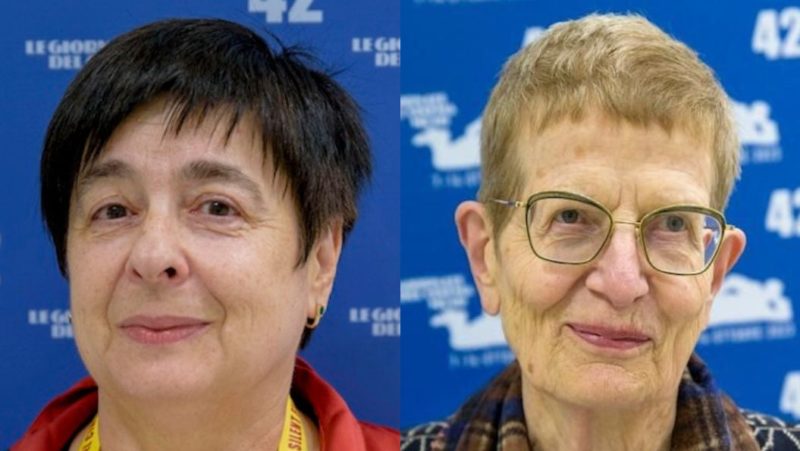The ceremony on Friday 13 October at the Teatro Verdi in Pordenone
as part of the Pordenone Silent Film Festival
Since 2017 the prize has been supported by the Fondazione Friuli.
The international Jean Mitry Award is awarded annually by the Giornate del Cinema Muto / Pordenone Silent Film Festival to individuals or institutions distinguished for their contribution to the reclamation and appreciation of silent cinema. For the second consecutive year the prize goes to two women: this year’s winners are Natalia Noussinova and Heide Schlüpmann.
Established in 1996 by the Province of Pordenone, the Jean Mitry Award has been supported since 2017 by the Fondazione Friuli. As per tradition, the ceremony has take place on the penultimate evening of the festival at the Teatro Verdi in Pordenone, and the award has been presented by the vice-president of the Fondazione Friuli Bruno Malattia, Esq..
Natalia Noussinova (Nusinova, Nussinova) is a film historian and writer. After graduating, she worked between 1977 and 2018 as a researcher at the Institute for Cinema Research in Moscow. In 2019 she became professor at the Moscow Film School (Universal University), a Russian-British institution in Moscow. Since October 2022 she has been a researcher and guest lecturer at the University for Foreigners in Siena. She has on many occasions been Guest Professor at the Sorbonne Nouvelle – Paris 3, the École Normale Supérieure (Paris, Ulm), the Université Michel de Montaigne – Bordeaux 3, the Free University of Brussels, and the University of Amsterdam.
Parallel to her academic career, she has been a scholarly consultant to the Cinémathèque française and Gosfilmofond. She has curated several retrospectives on Russian and Soviet cinema, and on Russian exile films, also for the Giornate del Cinema Muto in Pordenone and Cinema Ritrovato in Bologna. As a film historian she published a volume on Russian cinema in exile (2003) and edited numerous other works, including volumes on Truffaut, Kozintsev and Trauberg. In addition to her many articles, she has made significant contributions to the Storia del Cinema Mondiale, the Dizionario dei registi del cinema mondiale, both edited by Gian Piero Brunetta; and to the Enciclopedia del cinema. Dizionario critico dei film, edited by Gianluca Farinelli.
Heide Schlüpmann is a passionate cinema-goer. Following her studies in philosophy, she began studying cinema and film history in 1969 at the Goethe University in Frankfurt, where she obtained her first first teaching post. She also worked as a film critic in the 1980s, and was co-editor of the journal Frauen und Film, founded in 1974 by Helke Sander. A member of the selection committee of the International Short Film Festival in Oberhausen, Schlüpmann began researching early cinema in the mid-1980s; from this perspective, her first visit to the Pordenone Silent Film Festival in 1986 represented a fundamental experience.
Schlüpmann served from 1990 to 2018 as professor of film studies at the Goethe University, fostering a collaboration between university and cinema in general. She was also a member of the Archimedia Project, funded by the European Union, and Guest Professor of film at Dartmouth College in Hanover, New Hampshire, in 1996.
Since 1998 Schlüpmann has published books on film theory, closely connected with the philosophy of history, and has extensively written about Siegfried Kracauer.
Co-founder in 1999 of the Kinothek Asta Nielsen with Karola Gramann, Schlüpmann has established with her in 2018 the festival Remake. Frankfurt Women’s Film Days in collaboration with Gaby Babić.


 Italiano
Italiano
Recent Comments